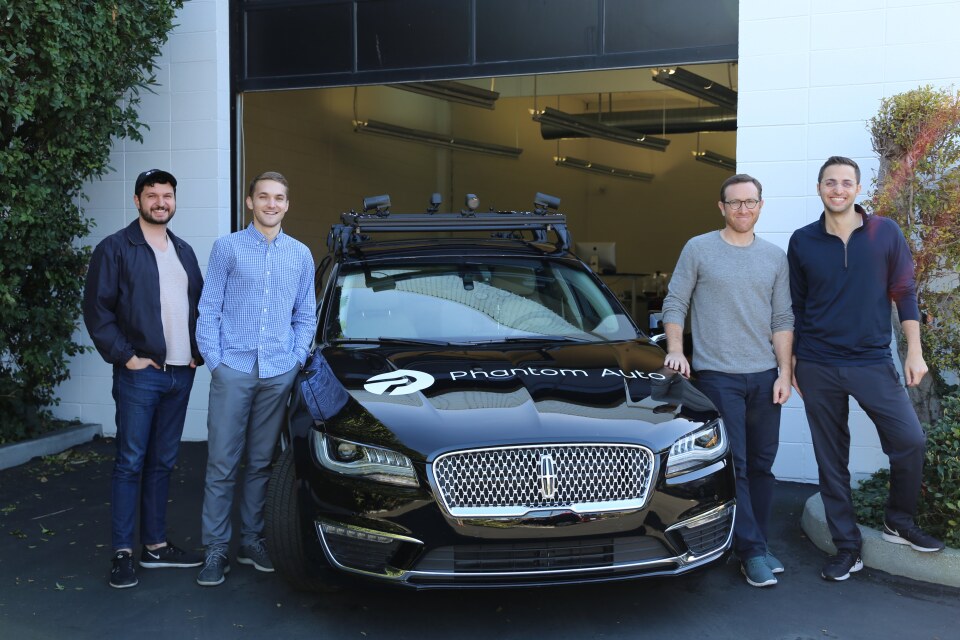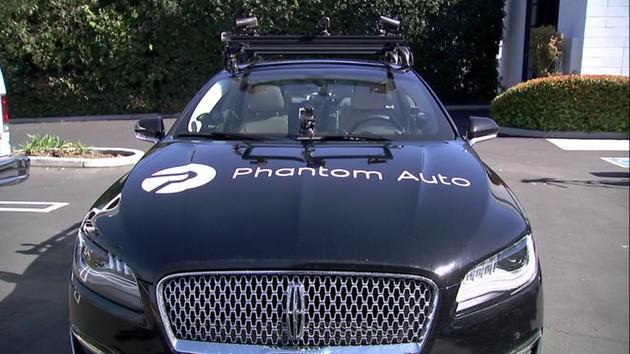California Democrats convened in San Diego this weekend, under new regulations self-driving cars will be allowed to have no pedals or wheels, Weinstein Company will file for bankruptcy.
California Democrats won't endorse candidates for governor, US Senate
How the #MeToo movement changed the California Democratic convention
What the Supreme Court ruling means for DACA recipients
How can we prevent the next school shooting?
In the aftermath of the school shooting at Marjory Stoneman Douglas High School in Florida, there's been an uptick in reports of threats being called or reported at schools.
Here in Southern California, about 20 school threats were reported, including threats or suspicious online posts in Manhattan Beach, Whittier and Los Angeles.
While this tends to follow a normal pattern of people being more alert and responsive to reporting threats after high-profile incidents, many wonder if there's a better way to deal with threatening situations, and how to separate incidents that should genuinely concern officials from obvious false threats.
This concern is shared by
formerly the Chief of Police for the Redlands Police Department. Bueermann now heads the non-profit organization, the Police Foundation, and they're conducting a study on situations where school shootings have been effectively averted, and what we can learn from them.
In cases where an act of school violence has been averted, almost always it is because someone heard or saw something that made them suspicious about the individual that might have done the shooting, and then said something about that person. That set off a protocol where the officials were able to do something and intervene ... so it is literally operationalizing of this notion of see something say something ...
And one of the things that his organization advocates is the notion of mental health first aid ...
Mental health first aid is sort of patterned after the first aid training that most of us have received in some form or another, relative to people chocking or having a heart attack, giving people CPR ... Mental health first aid is just sort of this idea that there is simple, plain language training that can be given to people to help them understand when they're in a mental health crisis ... and then the idea is that you tell somebody, or you help them get some help.
Jim Bueermann is the president of the Police Foundation, a national, nonpartisan, nonprofit organization.
California OK's driverless cars — with remote human control backup
Imagine you’re in a car, driving down the road, and you hit construction. Now imagine it’s a self-driving car that doesn’t have a steering wheel or pedals.
"The vehicle could essentially stop in its tracks and be confused or somewhat paralyzed," says Elliott Katz. He’s co-founder of Phantom Auto in Silicon Valley — a company that lets a human take remote control of a self-driving car from hundreds of miles away.

Under new California Department of Motor Vehicles regulations approved today, this sort of remote control system will be required for driverless cars. Those are cars that don’t need a human behind the wheel because there might not be a wheel — or pedals – for a human to even control. General Motors says it will start making such a vehicle next year.
"As long as the cameras are still working on the vehicle, we’ll still be able to drive in the same way that humans just need their eyes to drive," Katz says.
Using a cellular network, Phantom Auto can take control when an automatic notification is sent from the car itself when it realizes it can’t operate, or when a passenger inside pushes a button to request it, at which point, Phantom Auto can take over and control the car in real time.

"If you go to NPR.com right now and it takes six seconds for that page to load, it’s an annoyance, but there’s no real world consequences," Katz says. "But if you’re driving a vehicle over the cellular network, and you hit the brakes and the brakes don’t do what they’re supposed to do for even a second, there could be very bad consequences."
Phantom Auto isn’t the only company working on such systems.
Nissan Motor Company has what it calls a Mobility Control Center, in partnership with NASA.
Just like robots on Mars are operated with people right here on planet Earth, "I am convinced that the only way to really build autonomous systems is to make sure that they behave correctly and socially understandably for humans," says Martin Sierhaus, director of the Nissan Research Center in Silicon Valley. "The way to do that is to have a safety net in case things don’t work as we designed the system to do."

Every day, drivers encounter situations where they have to break the rules to successfully navigate what’s in their way. Maybe it’s a mattress blocking lanes. Or construction workers directing traffic. Stuff an autonomous vehicle might not be able to recognize and steer around.
"For these kinds of situations, we will need humans in the loop that help the system to break the rule," Sierhaus says.
The state of California now agrees. Under its new regulations for driverless car testing and deployment:
- There will be a separate permitting process for cars without a human driver.
- Companies have to certify with local authorities where the vehicles will be tested and provide the DMV with written notification that they let the authorities know.
- They also have to certify that the vehicle has a remote communication link between the vehicle and a remote operator.
- They have to have a process to communicate between the vehicle and law enforcement.
- The cars have to meet all federal vehicle motorcycle safety standards. If they want to take away the steering wheel or pedals, they would have to provide certification from NHTSA saying they’re allowed.
California drivers can expect to see the new regulations in effect as early as April 2.
California has allowed testing of self-driving cars since 2014. There are currently 50 different companies testing a total of about 387 vehicles on public roads in the state, mostly in the bay area. By law, those so-called self-driving cars have had to be operated with a human safety driver inside – just in case.
But starting in about a month, the car itself just might be the driver. A human will still be able to take over, but he just might be hundreds of miles away.
Got a bad driver's license pic? You might get a retake
No matter how much you turn, pose, and work a camera, your driver's license photo might be a wreck.
"I went to the DMV to have my photo taken last go-around," says Josh Newman, "and I said to the woman, 'I think I might have blinked.' She looked at me and said, 'You did.' I said, 'Well can I retake that?' And she said, 'Nope!'"
He says his own wife makes fun of his picture.
But Newman is also a state senator from Fullerton, and he wants to give everyone a second shot.
He proposed a new bill SB 1407 where, for a to-be-determined fee, people could retake their driver's license photo and pick the best one.
Alternatively, someone could have their picture taken elsewhere and bring the best shot to the DMV, similar to getting a passport.
There are enough self-conscious people in the state who'd like his idea, he says, "Especially in the age of Instagram and the selfie."
Newman's bill would direct the money raised towards more drivers' education classes and training in schools.
The proposed bill has to move through some committees before it can be considered by the full state legislature.
Of course even if it passes, there might be some people who just were never made for the camera.
Weinstein Co. will file for bankruptcy. What's next?
It's the end of the road for awards show season. This weekend, it's the big one. The 90th Academy Awards hosted by Jimmy Kimmel will air Sunday at 5 p.m.
So, how will the telecast grapple with the shadow of the #MeToo and #TimesUp movements? Vanity Fair's Rebecca Keegan has watched the telecast from the stage wings for years and has some insight:
"I imagine that host Jimmy Kimmel will probably address this in his monologue as previous hosts have addressed topical issues like #OscarsSoWhite, for instance. We've also seen some sort of evidence of anticipating controversy and getting out of the way of it."
Keegan is referring to Casey Affleck recusing himself of presenting the Best Supporting Actress award at this year's ceremony. It's customary for the winner of the previous year's Best Supporting role to present to the opposite sex. Affleck has been sued for sexual harassment in the past.
The #MeToo movement was sparked by the multiple sexual conduct allegations against Hollywood producer Harvey Weinstein, who owned the now doomed Weinstein Company.
For months, the company was in talks to be sold to a group of investors led by Maria Contreras Sweets until the New York Attorney General's office filed a civil rights lawsuit against the Weinstein Company and its co-founders. So what will happen to all the company's assets?
"I don't know if you're interested in buying, say, the rights to "Project Runway," or the "King's Speech." I think the Weinstein Company is now going to be sold for parts. The company's library, the rights to its shows and movies are likely all going to be sold."
As for its approximately 130 employees, hopefully, they've updated their resumes and are ready to make some phone calls.
McDonald's Szechuan sauce makes another comeback
The '90s may seem like a lifetime ago, but there are still some echoes of the decade that can be felt today. Such as this:
https://www.youtube.com/watch?v=mGRDCRuPklc
That McDonald's commercial is from 20 years ago, promoting "Szechuan sauce." The chicken McNuggets dipping sauce was only offered for a short time, in conjunction with the Disney film, "Mulan." And it came and went without much fanfare. Until this happened:
https://www.youtube.com/watch?v=FXIWyYtq85E
That's the popular animated T.V. series, "Rick and Morty" -- a dark TV parody of "Back to the Future." In this episode, a crazed scientist named Rick rants about the sauce to his nephew, Morty.
When it came out last April, the episode sparked a movement. "Rick and Morty" fans suddenly wanted the Szechuan sauce.
McDonald's gave into fans' demands and re-released the sauce, but it was only for one day back in October. Things got ugly quick.
https://www.youtube.com/watch?v=7_HboVYEkWw
Clearly, McDonald's didn't anticipate the crowds — or their appetites —or their anger. So today, after many months it's back.
The fast food restaurant announced it will be shipping 20 million packets nationwide, so you can get your fix while supplies last, if you're willing to brave the crowds.
But if you don't feel like standing in line, the Internet has you covered. An amateur chef has cooked up a copycat version of the sauce that's making the rounds online...so you can make it yourself.
Good luck!



